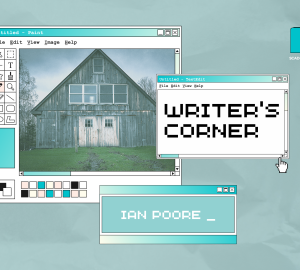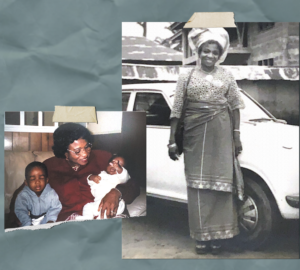
When I was a little girl, I remember going to the doctor for a flu shot. I had shots before and knew the needle would hurt. As they rubbed the alcohol on my arm, I could feel the pinch and burn before it happened. The pain ebbed only a few seconds after it was done, and I happily forgot about it when they gave me a lollipop. Sometimes, I learned, the pain comes before the pricking.
Thinking back to that day at the clinic, I know I thought of the pain to prepare me for it. In a backwards way, I thought if I brought on the sensation, then I had more control over it and that would somehow make it better. It’s why people flinch or tense before they think they’ll be hit. The memory of the pain is strong enough for them to recoil, but not real enough for them to feel it.
This is the double tragedy of life. We know it will hurt, but not what it will feel like. I was eight years old when my aunt drowned. I couldn’t comprehend the vastness of it. I couldn’t tell if my mother was laughing or crying. My father kept me away from it all and so the only pain I felt was confusion. Now, as my grandfather struggles to recognize our faces, I feel the alcohol rubbing on my arm but no sting. Just uncertainty.
I googled it one night out of, I don’t know, impulse? Fear? Confusion? Anticipatory grief. That’s the “official” word, if there is one. It’s what it sounds like, grief before the happening. You know it’s coming so your brain puts on little tests to work yourself up for it. Simulations of the pain so that you can muster up a little bit of restraint at the funeral. We practiced this remember? Just look up at the crown molding. We rehearsed this. Whenever we feel our throat collapse we think of that lecture our eighth grade teacher gave about the industrial revolution. Dry and factual. Completely unlike where we are now.
But there is no preparing for grief. It’s where evolution has yet to catch up. There’s nothing you can do in the face of it, and suddenly a lot of weird things start to make sense and what used to make sense doesn’t anymore. It’s a terrible habit of mine to practice feeling. All I’m doing, all anyone does with anticipatory grief, is prolong the pain. We think if we induce it we have control and that somehow makes it better, but it doesn’t.
One of my earliest memories, so surreal I sometimes think I dreamt it, is of my grandfather and I in the park. It was summer in the afternoon. The grass was greener than usual and had a gold glow from the sun. My grandfather drove a 1984 Nissan pickup with the crank windows and padded seats. He smoked a pipe everyday and the car was filled with the smell. I don’t remember anything we said to each other, we probably spoke very little, and I don’t remember what we ate. I just remember the peace and safety I felt in that pocket of life.
That was nearly fifteen years ago. My grandfather can’t drive anymore and his pickup sits in my mom’s garage, buried under a pile of gardening tools and tarps.
I don’t know what it will be like when he leaves. All I know is I don’t want that memory to go with him. That’s what people mean when they say cherish the good. In Judaism, we say “May their memory be a blessing.” My grandfather isn’t Jewish, but my memories of him are holy. His last lesson to me seems to be one I will spend the rest of my life learning. Letting go of that control. I have no idea what it will be like when he’s gone, so why dwell on it? I could never have the capacity for grief if I didn’t first have it for love.



























